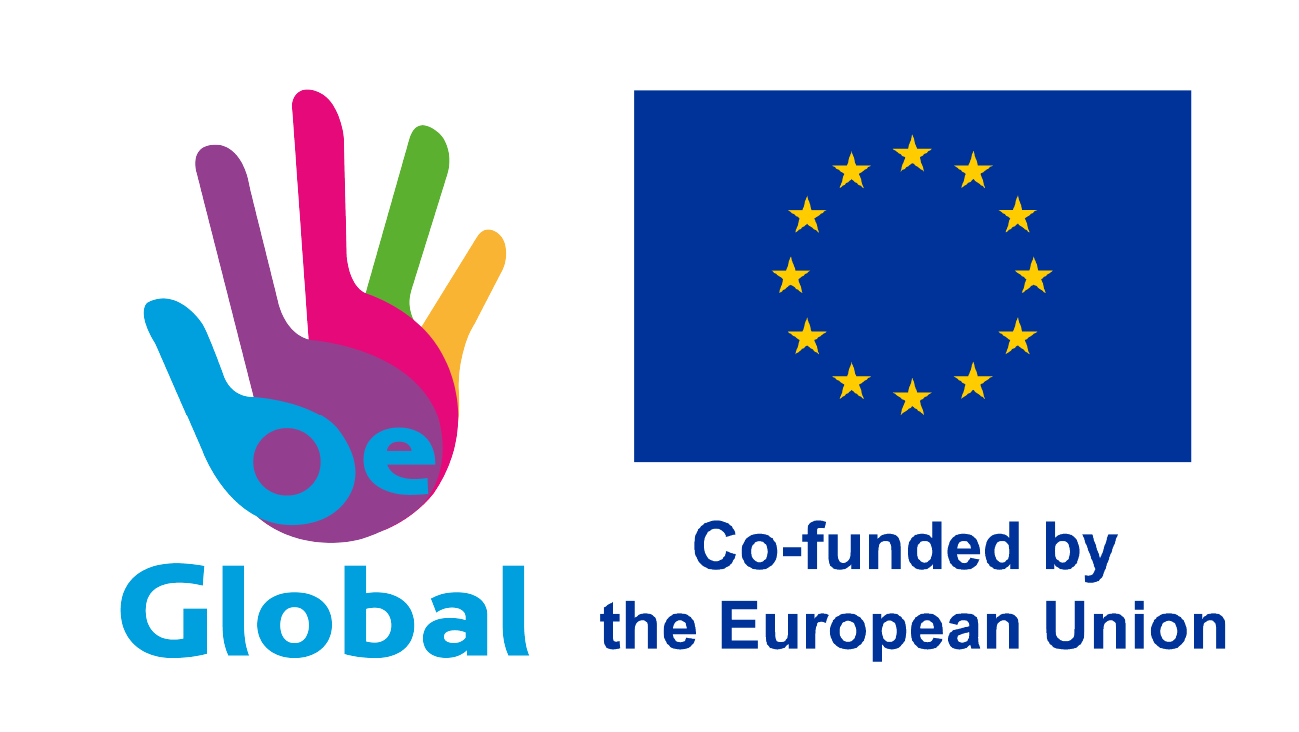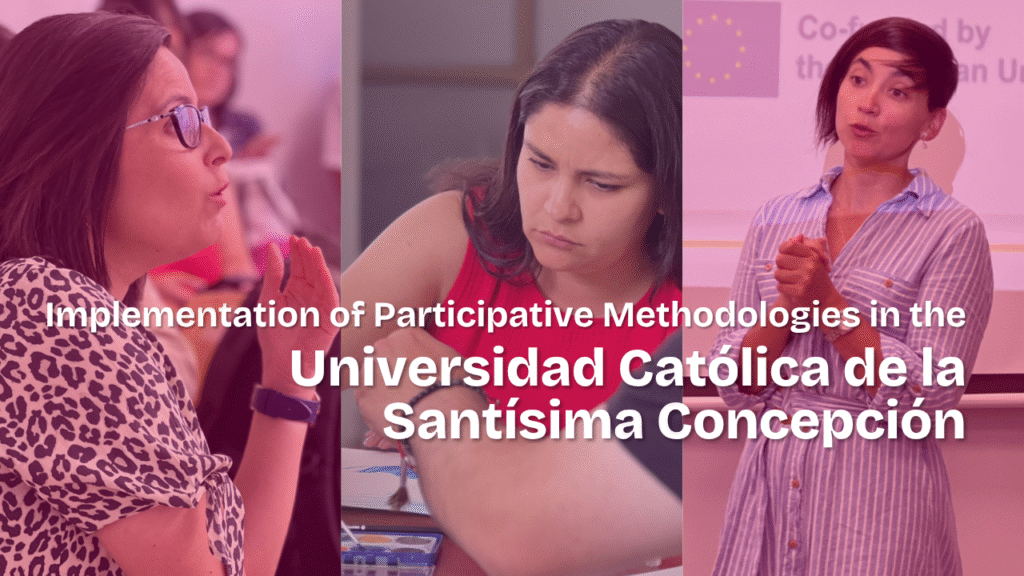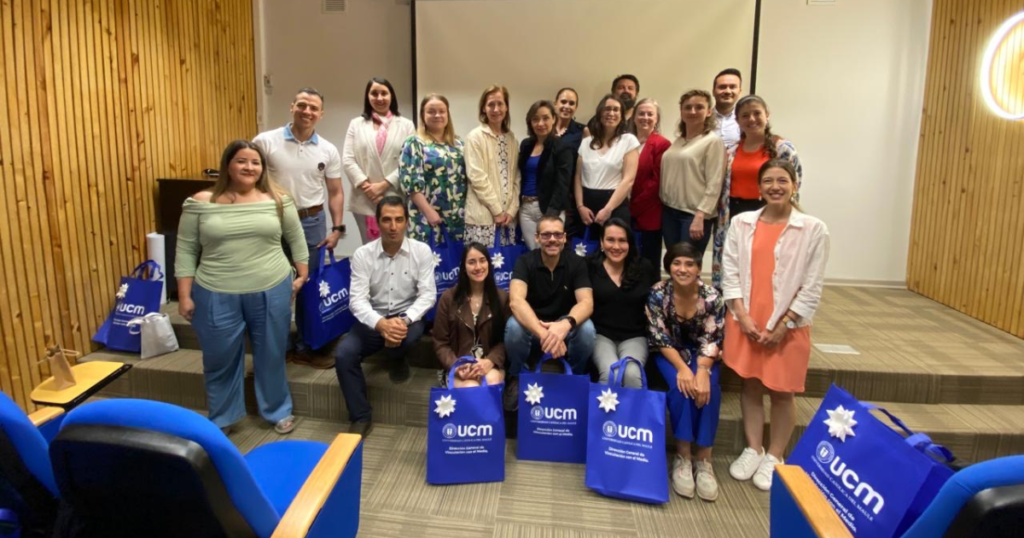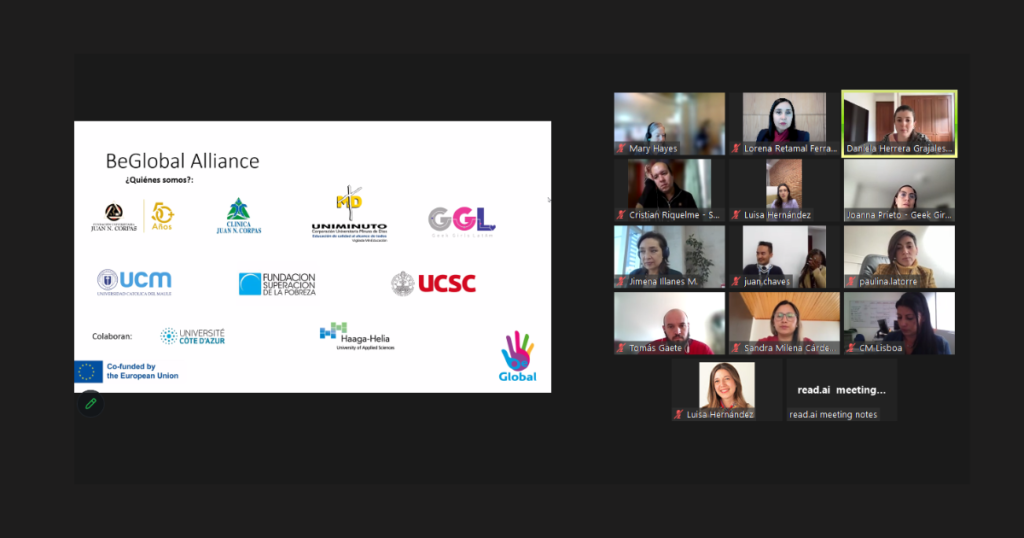This meeting is part of a series of activities within the Erasmus+ Capacity Building Project, which aims to strengthen capacities in Global Citizenship and Internationalization for Society through innovative pedagogical approaches and educational gamification tools.
With the aim of reflecting and coordinating actions related to global citizenship, representatives from la Universidad Católica de la Santísima Concepción (UCSC), Universidad Católica del Maule (UCM), and Fundación Superación para la Pobreza gathered at the Instituto Tecnológico, Chillán, Chile. Throughout the day, interactive activities were conducted to identify both global and local challenges.
The meeting, led by UCSC, featured a presentation by Paulina Latorre, Project Manager at UCM, who outlined the objectives of the BeGlobal project and the planned actions for its implementation. Later, representatives from the Fundación Superación para la Pobreza, from the Biobío and Ñuble regions, explained the scope of their «Servicio País» Program. Finally, UCSC academic Dr. Valeska Opazo and UCM’s Director of General Education, Ignacio Vilos, shared their experiences at Haaga-Helia University of Applied Sciences (Finland), where they attended training on gamification strategies in pedagogy.
Mary Hayes, Project Manager at UCSC, highlighted the importance of the event: «What we aimed for was to reflect on local challenges that will contribute to the project’s execution and the design of serious games.»
Meanwhile, UCM’s Ignacio Vilos emphasized the strategic meanings of the meeting in implementing participatory methodologies within the project framework: «We are at an intermediate stage in BeGlobal’s progress, awaiting the start of practical work with our students.»
From Fundación Superación para la Pobreza, Cristian Riquelme, Regional Director for Biobío, underlined the importance of integrating gamification as a key tool for community work: «Gamification facilitates processes such as data collection, diagnostic analysis, and decision-making in interventions.»
Likewise, UCSC’s Director of Institutional Relations and Outreach, María Daniela Raby, emphasized BeGlobal’s impact on students: «By promoting key competencies for active global citizenship, we facilitate the development of skills like critical thinking, intercultural empathy, and social responsibility—essential for facing the challenges of an interconnected world,» she stated.
This meeting is part of a series of activities within the Erasmus+ Capacity Building Project, which aims to strengthen capacities in Global Citizenship and Internationalization for Society through innovative pedagogical approaches and educational gamification tools. A core element of this initiative is the application of the serious games methodology.




